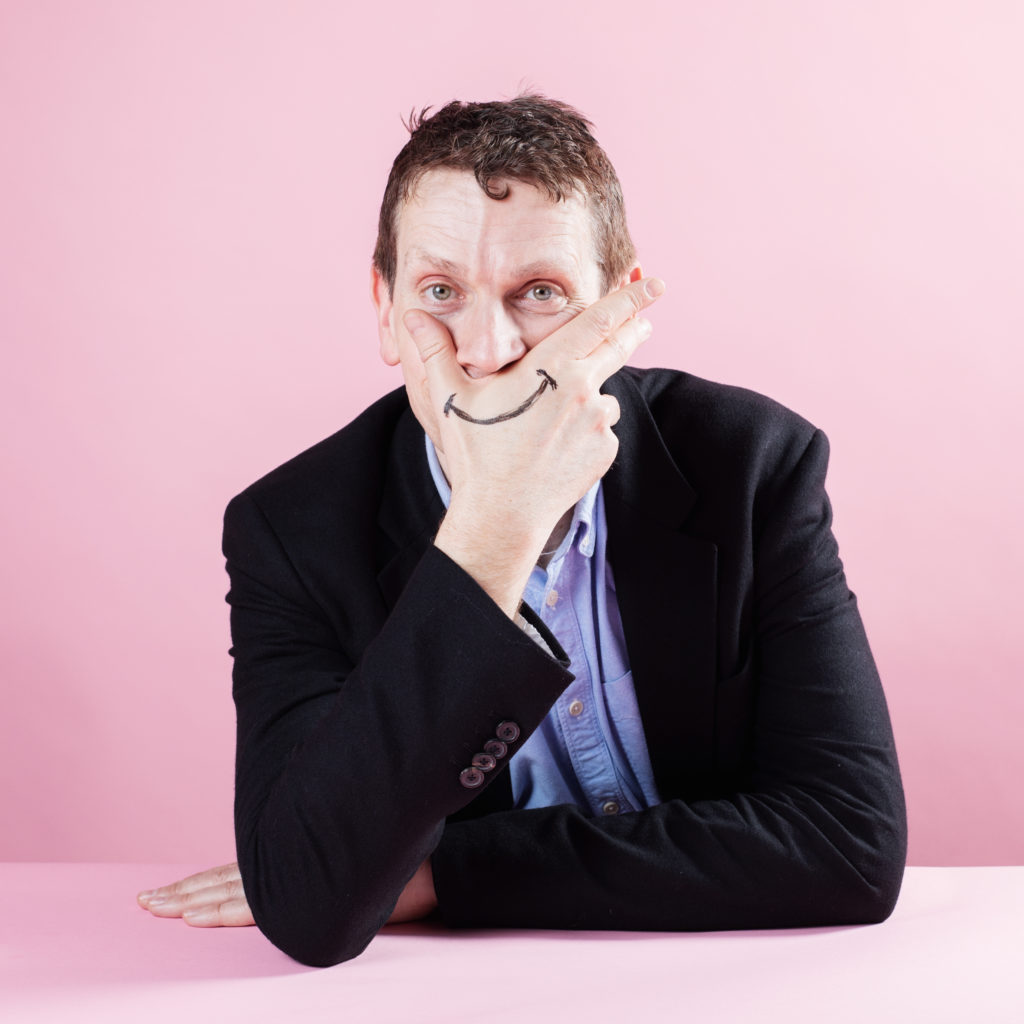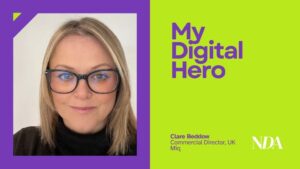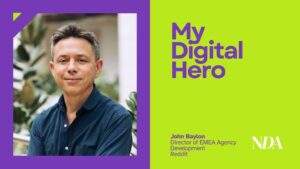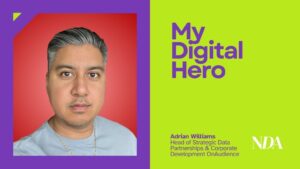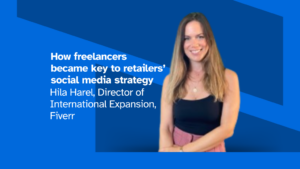We’re asking some of our industry’s leading figures to nominate their digital hero and to explain what’s so special about them.
Bruce Daisley, genuinely one of the nicest people in the entire industry, is not only VP EMEA at Twitter, he’s now a best-selling author, with The Joy of Work and also runs the number-one business podcast Eat Sleep Work Repeat.
Bruce was picked as Chris Maples’ digital hero and here he returns the favour, picking his My Digital Hero.
Who is your digital hero?
I’ve thought long and hard about this. There’s no shortage of people I admire in UK digital media.
Before I go onto my hero I wanted to ensure that I credited someone closer to home. I always consider it an honour to work with people who emanate intelligence and wit and I’ve been fortunate to work with truly wonderful people. But it’s easy to choose colleagues. I wanted to give credit to someone less celebrated – Jon Mew has done a wonderful job at the Internet Advertising Bureau and I wanted to call him out for it.
I’ve always held the view that the job that Tess (Alps) and Lindsay (Clay) have done at Thinkbox has been magisterial – combining gravitas and good humour but over the last couple of years I’ve been blown away with the job that Jon Mew has done for digital. It can never be easy bringing the big beasts of the internet along with the latest start-up, but Jon does it with intellect, diplomacy and a great sense of fun. What a man!
As someone who has never been top of the class in anything I’ve ever done (work or study) I’ve never stopped being awed by the talented people I’ve got to work with. I’ve spent time with the founders of incredible digital iconic businesses, and I feel immensely lucky. The person I’ve chosen however is a digital academic. Sandy Pentland works at the Massachusetts Institute of Technology.
He is a professor at MIT, who used to work in the Media Lab there. The Media Lab are a wonderful part of the institution that just looks to run experiments mixing different disciplines in the pursuit of new learning, they often fashion new inventions to imagine applications for them. Last time I spoke to someone there they were working out how to put printable electrical circuits into colouring books for kids. Just because.
What has he done to win hero status in your eyes?
Alex/Sandy Pentland is a professor who has experimented in countless ways with technology to try to understand human behaviour. He performed a remarkable intervention where he recently turned the lanyard badges that a lot of us wear to bleep in and out of the office into smart devices that can track what goes on in a workplace. He said within weeks he could tell what a creative office looked like, compared to uncreative office.
There’s almost a behavioural DNA of creation.
How has his heroism helped drive digital?
As much as we might talk about tech stacks and algorithms, work is an occupation of human beings. As technology becomes more complex we’re discovering that paradoxically human input is becoming higher value.
Sandy Pentland has helped us to visualise what this human input looks like; he was able to observe that human interaction seems to be most effective when not exclusively preserved to meetings and emails but when we give ourselves time for face-to-face chat.
Many of us find ourselves awestruck by the capabilities of new digital applications — and look past the fact that forging ways for humans to feel a connection seems to be the root cause of creative insight and discovery.
What is the biggest challenge in digital we need another hero to solve?
Society is right in the middle of working out how we can make conversation more civil online — in my day job at Twitter it’s our daily obsession. But the challenges go beyond this, the internet is silently changing human behaviour in almost unobservable ways.
What is your most heroic personal achievement so far in digital?
I have had a lot of laughs. Lots. I laugh every single day at work. I recognise that makes me lucky compared to a significant part of the workforce and I never take it for granted.
The reason why I started a podcast about happiness at work was that — maybe ridiculous — idea that maybe I could find the formula for creating productive, positive work.


